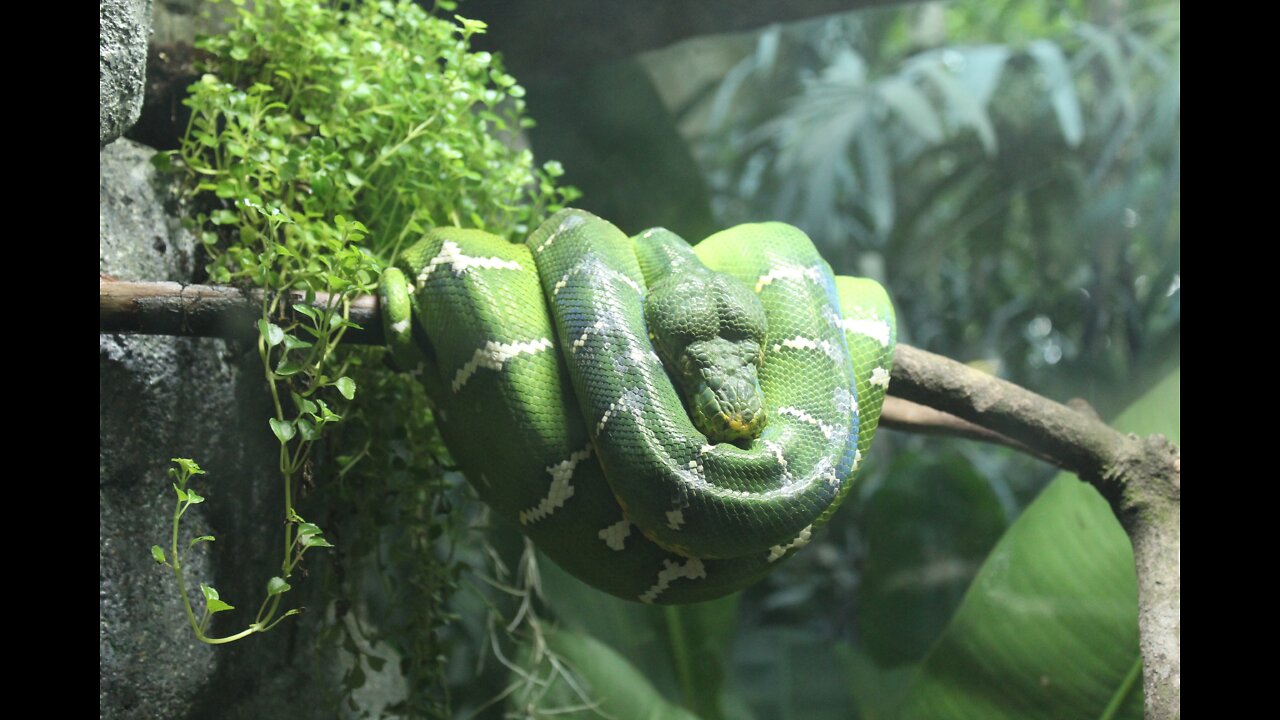Premium Only Content

Close up view of wild snakes. 4K
There are more than 3,000 species of snakes on the planet and they’re found everywhere except in Antarctica, Iceland, Ireland, Greenland, and New Zealand. About 600 species are venomous, and only about 200—seven percent—are able to kill or significantly wound a human.
Nonvenomous snakes, which range from harmless garter snakes to the not-so-harmless python, dispatch their victims by swallowing them alive or constricting them to death. Whether they kill by striking with venom or squeezing, nearly all snakes eat their food whole, in sometimes astoundingly large portions.
Almost all snakes are covered in scales and as reptiles, they’re cold blooded and must regulate their body temperature externally. Scales serve several purposes: They trap moisture in arid climates and reduce friction as the snake moves. There have been several species of snakes discovered that are mostly scaleless, but even those have scales on their bellies.
How snakes hunt
How snakes hunt
Snakes also have forked tongues, which they flick in different directions to smell their surroundings. That lets them know when danger—or food—is nearby
Snakes have several other ways to detect a snack. Openings called pit holes in front of their eyes sense the heat given off by warm-blooded prey. And bones in their lower jaws pick up vibrations from rodents and other scurrying animals. When they do capture prey, snakes can eat animals up to three times bigger than their head is wide because their lower jaws unhinge from their upper jaws. Once in a snake’s mouth, the prey is held in place by teeth that face inward, trapping it there.
Habits
About once a month snakes shed their skin, a process called ecdysis that makes room for growth and gets rid of parasites. They rub against a tree branch or other object, then slither out of their skin head first, leaving it discarded inside-out.
Most snakes lay eggs, but some species—like sea snakes—give live birth to young. Very few snakes pay any attention to their eggs, with the exception of pythons, which incubate their eggs.
There are roughly a hundred snake species listed by the IUCN Red List as endangered, typically due to habitat loss from development.Here’s a fact to make ophidiophobes feel uneasy: Five species of snakes can fly.
-
 LIVE
LIVE
Drew Hernandez
21 hours agoBONDI DOJ BLOWS IT ON COMEY/LETICIA INDICTMENTS?!
928 watching -
 LIVE
LIVE
PandaSub2000
4 days agoLIVE 10:30pm ET | CARMEN SANDIEGO
258 watching -
 12:10
12:10
Robbi On The Record
1 day ago $2.37 earnedKarmic Disclosure and Predictive Programming
16.6K3 -
 4:57
4:57
Gamazda
4 hours ago $2.10 earnedAerosmith - Dream On (Piano by Gamazda)
11.3K8 -
 8:12
8:12
Freedom Frontline
7 hours agoChip Roy DESTROYS Democrat After She Explodes Over Shutdown Truth
7.62K -
 LIVE
LIVE
We Like Shooting
15 hours ago $1.15 earnedWe Like Shooting 638 (Gun Podcast)
233 watching -
 46:09
46:09
MattMorseTV
4 hours ago $19.65 earned🔴Bondi just DROPPED the BALL... BIG TIME.🔴
20.9K118 -
 23:57
23:57
Jasmin Laine
8 hours agoCarney SNAPS at Reporters—MOCKS Trump and it BACKFIRES IMMEDIATELY
14K30 -
 1:04:42
1:04:42
Sarah Westall
4 hours agoDo Near Death Experiences Provide a Glimpse into Reality? w/ Darius Wright
14.1K1 -
 49:36
49:36
Barry Cunningham
5 hours agoMUST SEE: PAM BONDI AND KAROLINE LEAVITT MAKE REMARKS! | AND MORE NEWS!
106K35